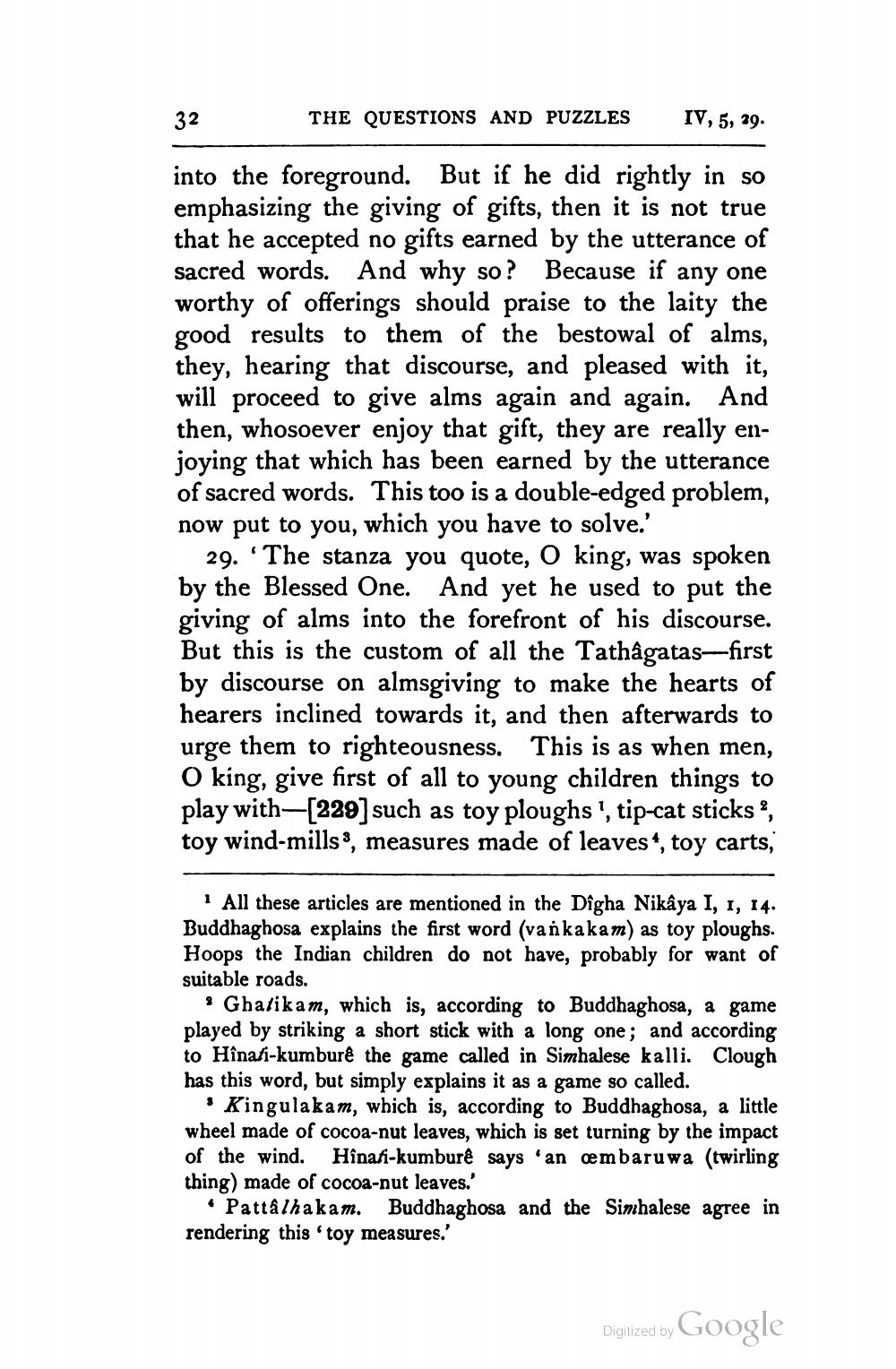________________
32
THE QUESTIONS AND PUZZLES
IV, 5, 29.
into the foreground. But if he did rightly in so emphasizing the giving of gifts, then it is not true that he accepted no gifts earned by the utterance of sacred words. And why so ? Because if any one worthy of offerings should praise to the laity the good results to them of the bestowal of alms, they, hearing that discourse, and pleased with it, will proceed to give alms again and again. And then, whosoever enjoy that gift, they are really enjoying that which has been earned by the utterance of sacred words. This too is a double-edged problem, now put to you, which you have to solve.'
29. 'The stanza you quote, O king, was spoken by the Blessed One. And yet he used to put the giving of alms into the forefront of his discourse. But this is the custom of all the Tathagatas-first by discourse on almsgiving to make the hearts of hearers inclined towards it, and then afterwards to urge them to righteousness. This is as when men, O king, give first of all to young children things to play with—[229] such as toy ploughs', tip-cat sticks?, toy wind-mills*, measures made of leaves“, toy carts,
All these articles are mentioned in the Digha Nikaya I, 1, 14. Buddhaghosa explains the first word (vankakam) as toy ploughs. Hoops the Indian children do not have, probably for want of suitable roads.
i Ghatikam, which is, according to Buddhaghosa, a game played by striking a short stick with a long one; and according to Hînali-kumbure the game called in Simhalese kalli. Clough has this word, but simply explains it as a game so called.
Kingulakam, which is, according to Buddhaghosa, a little wheel made of cocoa-nut leaves, which is set turning by the impact of the wind. Hînafi-kumburê says 'an embaruwa (twirling thing) made of cocoa-nut leaves.'
• Pattâlhakam. Buddhaghosa and the Simhalese agree in rendering this 'toy measures.'
Digitized by Google




